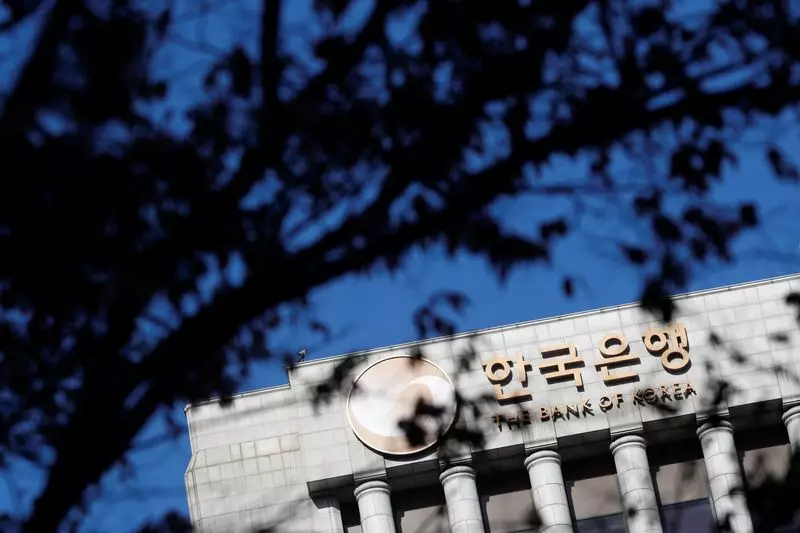In an unexpected move, the Bank of Korea (BOK) announced an interest rate cut amid deteriorating economic conditions, revealing the increasing challenges faced by policymakers in South Korea. This reduction of the benchmark interest rate, now at 3.00%, marks the second consecutive cut in a bid to stimulate a sluggish economy. The decision, which only four out of thirty-eight economists anticipated in a recent poll, highlights a broader uncertainty regarding global trade dynamics, particularly influenced by the political landscape in the United States.
One of the primary reasons for the BOK’s decision stems from the anxiety surrounding potential trade conflicts, as former President Donald Trump’s anticipated return to power raises concerns within South Korea’s export-driven economy. Governor Rhee Chang-yong articulated that the competitive nature of exports among major countries is intensifying. This statement signals that South Korean exporters could face increasing pressure due to rising tariffs or restrictions if Trump’s policies follow suit from his previous term. The fear of trade imbalances, especially with China, which is also poised for potential tariff hikes, adds to the complexity of the situation.
The South Korean economy, classified as the fourth-largest in Asia, is navigating challenging waters. Recent data illustrated a marginal GDP growth of just 0.1% in the third quarter, narrowly avoiding a technical recession. This stagnation is largely attributed to a slowdown in consumer spending and a halt in export growth. The urgency for economic revitalization is supported by the BOK’s analysis, suggesting that inflationary pressures have subsided, granting the central bank some leeway to implement growth-oriented strategies.
As the situation unfolds, the South Korean government is poised to take measures to fortify its economic landscape. In response to the Trump administration’s potential policies, especially concerning the country’s vital semiconductor sector, the government announced initiatives aimed at bolstering local chip manufacturers. Given the sector’s importance as a growth driver for the economy, these protective measures reflect an administration keen on sustaining competitive advantages amidst global uncertainties.
Following the rate cut announcement, market reactions were mixed. The immediate response saw South Korea’s three-year treasury bond futures rise slightly, indicating a receptive market environment, while the South Korean won experienced depreciation, illustrating investor hesitance. Analysts like Ahn Jae-kyun from Shinhan Securities suggest that despite dissent within the BOK board, the dominant inclination towards rate cuts indicates that further decreases are on the horizon—especially in the early months of 2024.
The implications of these financial maneuvers stretch beyond mere interest-rate adjustments. The downgrading of growth forecasts from 2.4% to 2.2% for 2024, and an even lower prediction of 1.9% for the subsequent year, underscores the persistent anxiety about economic vitality. Additionally, consumer inflation projections have been adjusted from 2.5% to 2.3%, mirroring a broader trend of cautious optimism among economists who remain wary of the long-term impacts of geopolitical stability—or instability.
As South Korea navigates this pivotal economic juncture, marked by external trade threats and internal challenges, the central bank’s recent actions illustrate a responsive but cautious approach to monetary policy. The interplay of domestic consumer behavior, international trade relations, and the political scenarios in the United States will continue to define South Korea’s economic landscape in the upcoming months. In prioritizing growth, the BOK must balance immediate economic stimuli with the risks posed by external market pressures and the unpredictability of global trade dynamics. The road ahead may be fraught with challenges, but it is one that demands innovative solutions and strategic foresight.

